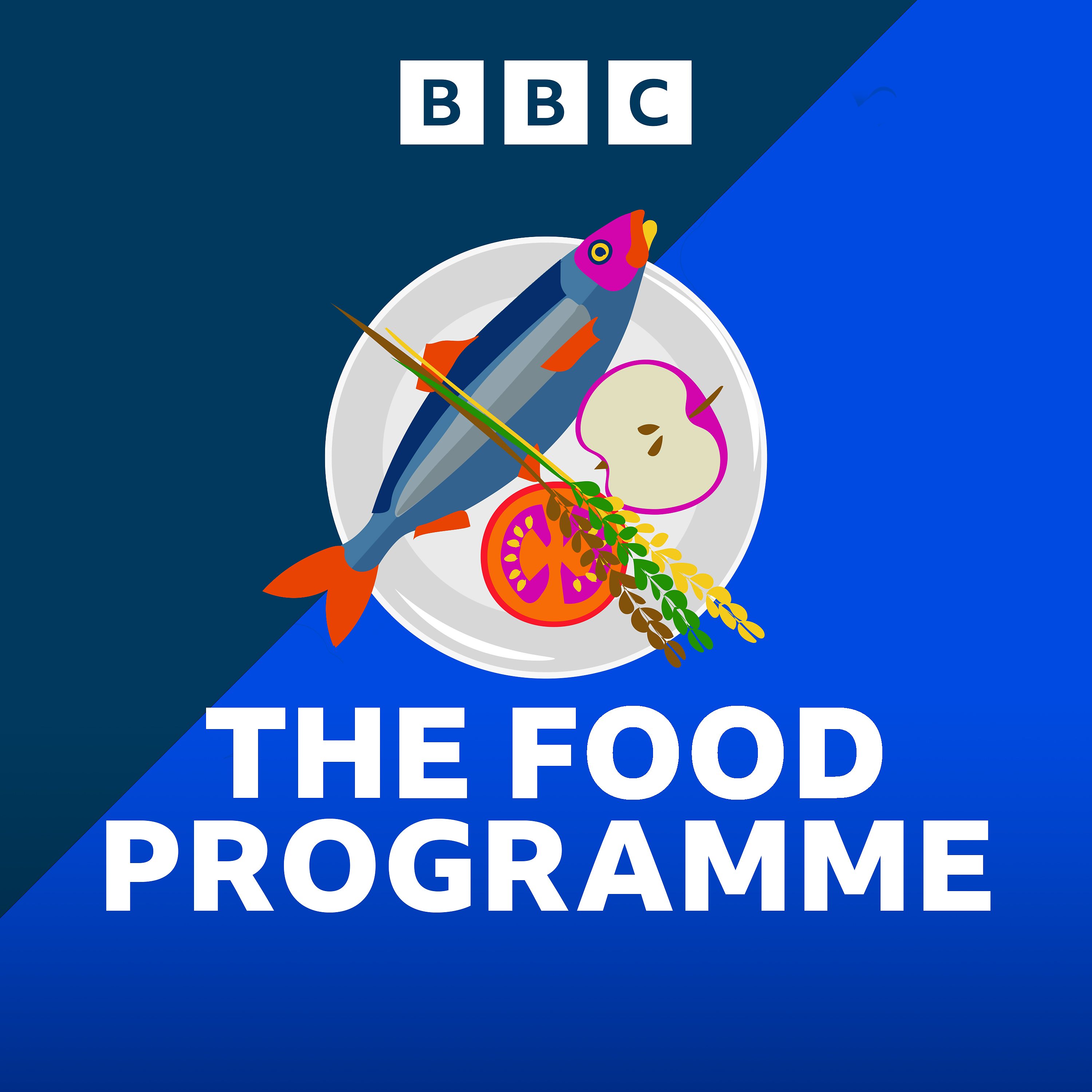

The Food Programme
BBC Radio 4
Investigating every aspect of the food we eat
Episodes
Mentioned books

Oct 29, 2012 • 28min
Football and Food
John Inverdale looks at innovations in the food offerings at football grounds that aim to give fans and players alike a better eating experience than the traditional burger and pie. He visits League Champions Manchester City who are leading the way in the food revolution.Producer: Maggie Ayre.

Oct 22, 2012 • 30min
The Future of the Oven
Tim Hayward glimpses the future of the domestic oven. After decades of remaining relatively unchanged, ovens will soon be intelligent , with probes, steam and user interfaces.Mary Berry gives Tim some tips on how best to use your oven, and food historian Bee Wilson explains how ovens used to be so cutting edge that people were afraid of them.Presenter: Tim Hayward. Producer: Emma Weatherill.

Oct 15, 2012 • 28min
How to waste less food
Tristram Stuart reports on the latest ideas to tackle our growing mountains of food waste by thinking creatively and producing good food from surplus produceProducer: Maggie Ayre.

Oct 9, 2012 • 28min
British Blue Cheese
British blue cheese is aspiring to move from niche to mass market. Blue cheese has been made on the continent since Roman times. But in the UK, blue in cheese was historically viewed as "white cheese gone wrong". Now, British blue cheese producers are trying to make creamy, sweet, salty cheeses in a European style to compete with the continental imports of Gorgonzola, Cambozola and Danish Blue.Sheila Dillon travels to the British Cheese Award to search for the perfect blue cheese for the mass market's palate. Food historian Ivan Day explains why Stilton was the most expensive cheese in Victorian Britain. And cheese maker John Longman shows Sheila how to turn a cheese blue. Presented by Sheila Dillon and produced by Emma Weatherill.

Oct 1, 2012 • 27min
Food and Farming Awards: The Finalists
Cook and food writer Valentine Warner reveals this year's line up of finalists in the BBC Food & Farming Awards. For the past four months the team of judges including chef Angela Hartnett, drinks writers Pete Brown and Victoria Moore as well as Valentine have all been sifting through nominations and selecting the potential winners of awards. Who they've chosen and why is all in this special edition of The Food Programme, as well as information about how you can be in this year's audience for the ceremony held in November.Producer: Dan Saladino.

Sep 23, 2012 • 24min
Food and the Cinema
Tom Parker Bowles looks at the cinema eating experience: from popcorn and nachos to three course meals, there's now every kind of food available to nibble on whilst at the movies. But is it right that we should eat in such a distracted way? Isn't it a ticket to obesity?Producer: Maggie Ayre.

Sep 16, 2012 • 28min
Sourdough
Sheila Dillon finds out why sourdough bread is undergoing a major revival. It is the world's oldest leaven bread dating back to Ancient Egypt and it is now experiencing a renaissance. Baker Dan de Gustibus explains how the bread is made from a sourdough starter, a mixture of flour and water which is left to ferment until wild yeasts and bacteria start breeding. But there are many myths around this sourdough starter - bakers compete over who can trace back the oldest lineage. Yeast technologist Dr Bill Simpson debunks these myths to explain the truth behind how sourdough works.And food historian Erica Peters explains why she thinks the famous San Francisco sourdough isn't linked to the Californian Gold Rush, despite its claims.Presenter by Sheila Dillon and produced by Emma Weatherill.

Sep 10, 2012 • 28min
Australia's Food Revolution
Sheila Dillon finds out how Australia, a nation founded on the bulk export of cheese and meat, became one of the world's most exciting gastronomic destinations.The food story of the early settlers is told by Michael Symons, former restaurateur, academic and author of One Continuous Picnic: A Gastronomic History of Australia. In 1788, convicts and peasants arrived to an uncultivated land and farming and food were quickly geared towards large scale agriculture and exports of meat and dairy to the British Empire.In more recent years Australia has become a place of pioneering, experimental chefs and home to some of the world's greatest ingredients as well as the source of global food trends. Sheila tells the story of this major transition with the help of food writer Charles Campion, on tour in Sydney and Melbourne.The story also weaves in a hunt for indigenous aboriginal foods and the account of a man whose contribution to Australian food culture was to bury 80kg of Roquefort cheese to the French national anthem. Both are fascinating episodes in a colourful and surprising food story.Producer: Dan Saladino.

Sep 7, 2012 • 28min
A Guide to Spice, Part 3: Mustard
Sheila Dillon explores a food story of decline and revival, British mustard.

Aug 29, 2012 • 27min
A Guide to Spice, part 2: Vanilla
Do you know how vanilla beans are hand pollinated? Do you know why harvested vanilla pods are wrapped in hot blankets? Sheila Dillon reveals all as she continues her exploration of the modern spice world by looking at vanilla. Reporter Vanessa Kimbell travels to Uganda to meet Lulu Sturdy, a British furniture designer who inherited a run down estate in Uganda, and within a decade has turned it into an influential source of quality vanilla beans. She follows this year's harvest and hears the incredible effort involved during the careful processing of the pods.Chef Jeremy Lee and Niki Segnit, author of The Flavour Thesaurus provide a guide to flavour combinations and cooking techniques with vanilla.


